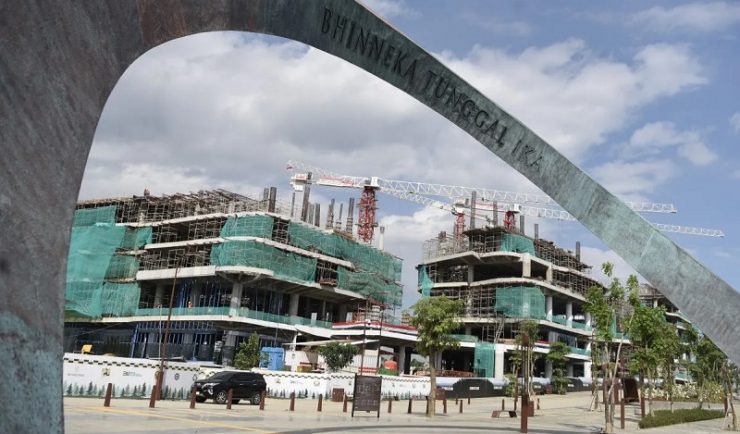SIX to eight investors, including one from China and one from Australia, are scheduled to conduct groundbreaking ceremonies for their projects at the National Capital City (IKN) Nusantara this week, Acting Deputy Head of the IKN Authority (OIKN) Raja Juli Antoni announced on Monday (09/9), 2024.
“On September 12, 2024, President Joko Widodo will oversee another groundbreaking at IKN, with six to eight investors participating,” he said.
Antoni noted that one of the investors is Delonix Group from China, which plans to build malls, hotels, apartments, and shopping centers with a total investment of around IDR500 billion (US$31 million).
Another investment, from the Australian Independent School, will focus on the education sector, with an initial investment of IDR150 billion (US$9.4 million).
Antoni informed that out of the 31 investor groups at IKN, six involve mixed cooperation between local and foreign investors, including the Mayapada Hospital collaboration with Apollo Hospital from India and the energy procurement collaboration between PLN (State Electricity Company) with Sembcorp Singapore.
“Actually, foreign investors are queuing to invest at IKN. We need improvement in the OIKN internal governance system,” he said.
He added that the improvement must include making quicker responses to proposals as well as matching existing land and existing spatial planning. “After the groundbreaking this month, we will find a pattern to accelerate development in IKN,” Antoni said.
He noted that the funding for the development of IKN is being covered by the state budget and investment, both via direct investment and government and business entity cooperation (KPBU) or private-public partnership.
Based on the Attachment to Law No. 3 of 2022 concerning the IKN Master Plan, to support preparation, development, and relocation, as well as the implementation of special IKN governance, the government is synergizing funding from the state budget and other legitimate sources, in keeping with the provisions of laws and regulations.
The funding sources in question include the state budget, which can be used to finance projects through the allocation of spending and/or financing budgets, and the KPBU scheme for IKN.
They further include the participation scheme for business entities under which capital will be partially or fully owned by the state, including state-owned companies, or private companies.
Meanwhile, international funding can come from bilateral/multilateral institutions that wish to participate in the development of a green and smart IKN through grants and/or the provision of bailout funds. Another funding scheme is creative financing, which includes crowdfunding and the use of philanthropy funds. [antaranews]
















